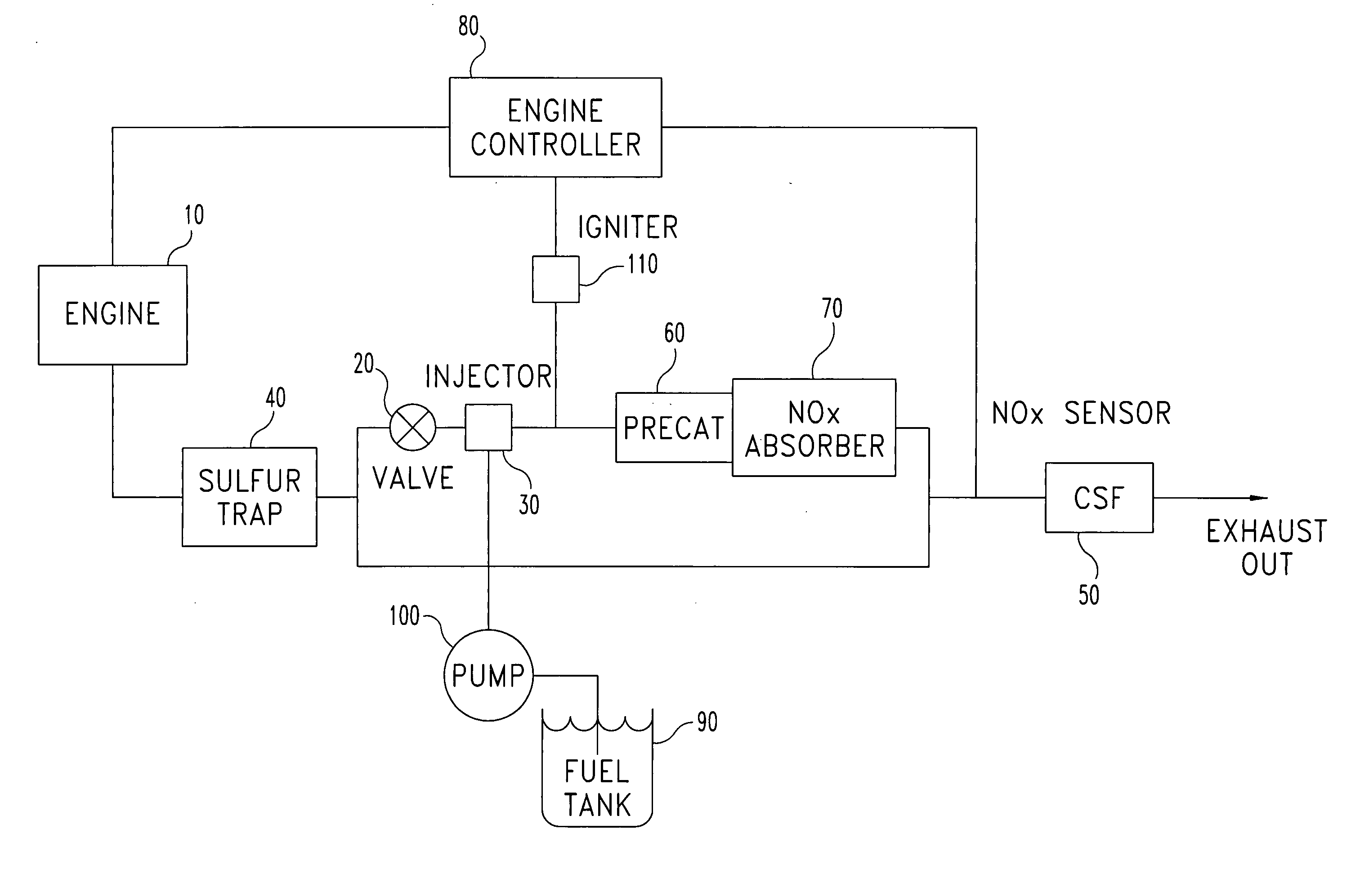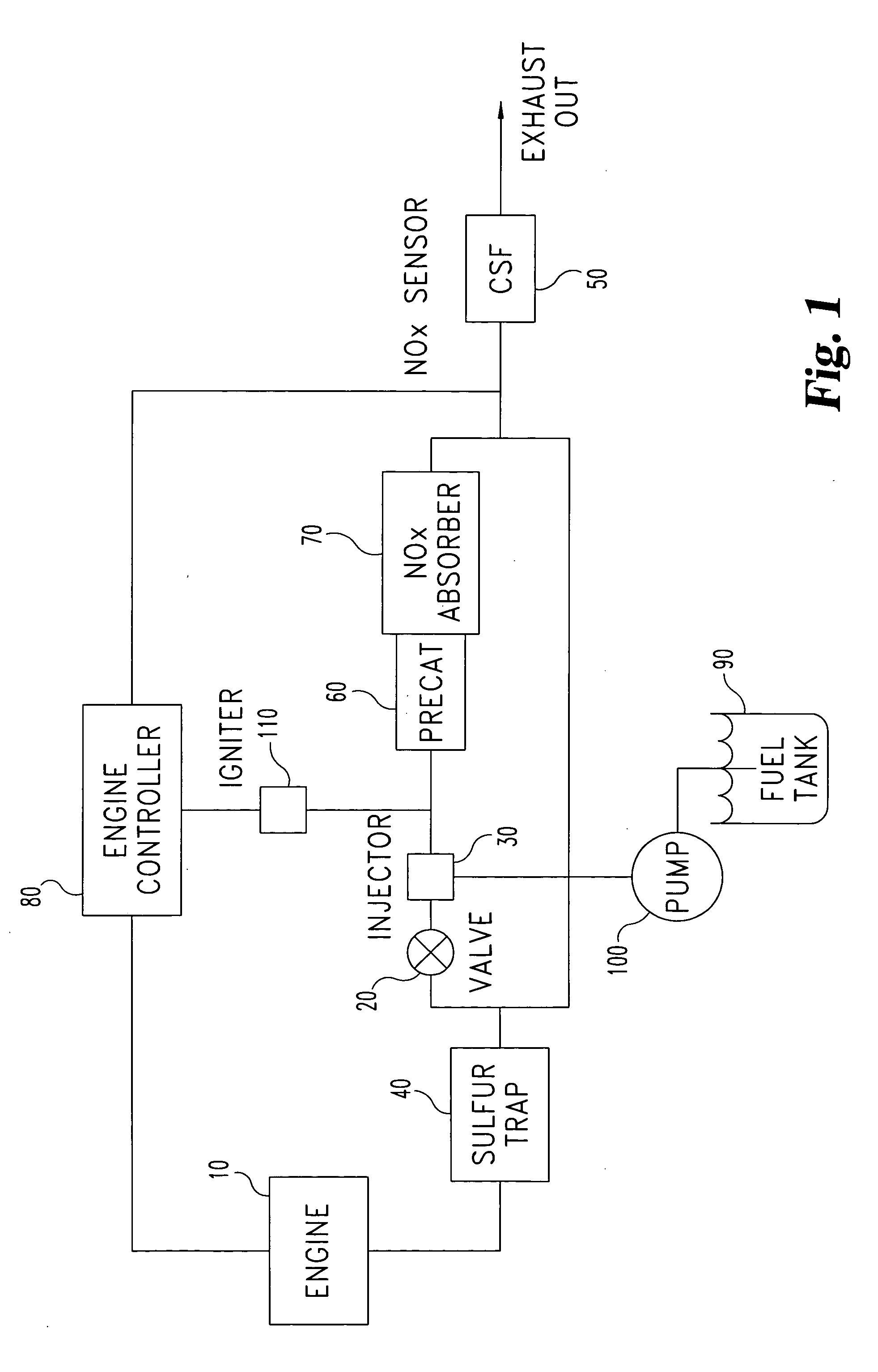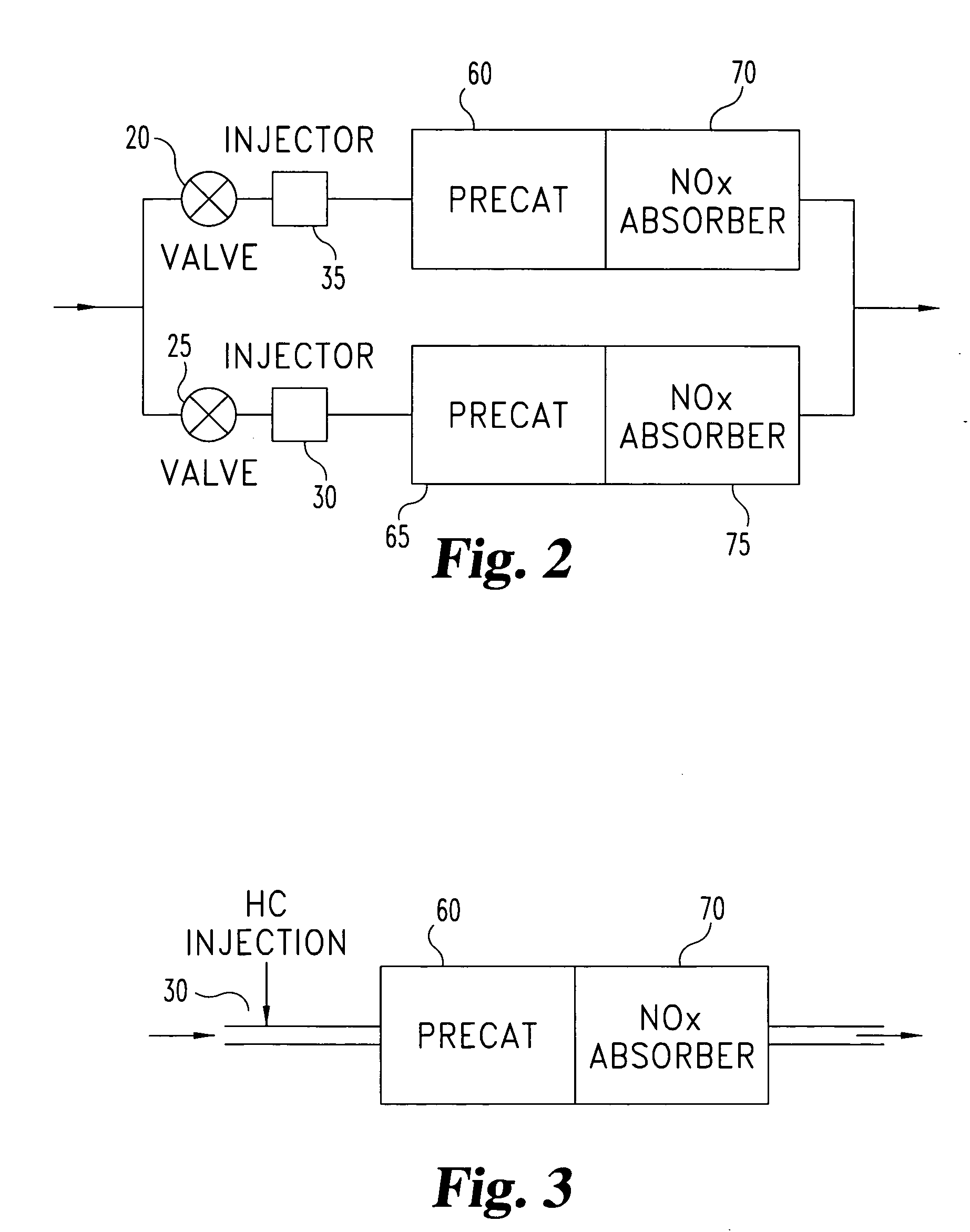Precat-NOx adsorber exhaust aftertreatment system for internal combustion engines
an aftertreatment system and nox adsorber technology, applied in the field of internal combustion engines, can solve the problems of inability to achieve the low emission level required by the standard, inability to achieve the low emission level, and inability to reduce the efficiency of pacr, etc., and achieve the effect of efficient regeneration of nox adsorber/reducer
- Summary
- Abstract
- Description
- Claims
- Application Information
AI Technical Summary
Benefits of technology
Problems solved by technology
Method used
Image
Examples
Embodiment Construction
[0024] For the purposes of promoting an understanding of the principles of the invention, reference will now be made to the embodiment illustrated in the drawings and specific language will be used to describe the same. It will nevertheless be understood that no limitation of the scope of the invention is thereby intended, and alterations and modifications in the illustrated device, and further applications of the principles of the invention as illustrated therein are herein contemplated as would normally occur to one skilled in the art to which the invention relates.
[0025] NOx adsorber catalysts have the potential for great NOx emission reduction (60-90%) and the NOx adsorber is one of the most promising NOx reduction technologies. During lean-burn operation of the engine, the trap adsorbs nitrogen oxide in the form of stable nitrates. Commonly used NOx absorbers are comprised of, for example, precious metals such as platinum, rhodium, and at least one alkali metal, as for example...
PUM
 Login to View More
Login to View More Abstract
Description
Claims
Application Information
 Login to View More
Login to View More - R&D
- Intellectual Property
- Life Sciences
- Materials
- Tech Scout
- Unparalleled Data Quality
- Higher Quality Content
- 60% Fewer Hallucinations
Browse by: Latest US Patents, China's latest patents, Technical Efficacy Thesaurus, Application Domain, Technology Topic, Popular Technical Reports.
© 2025 PatSnap. All rights reserved.Legal|Privacy policy|Modern Slavery Act Transparency Statement|Sitemap|About US| Contact US: help@patsnap.com



